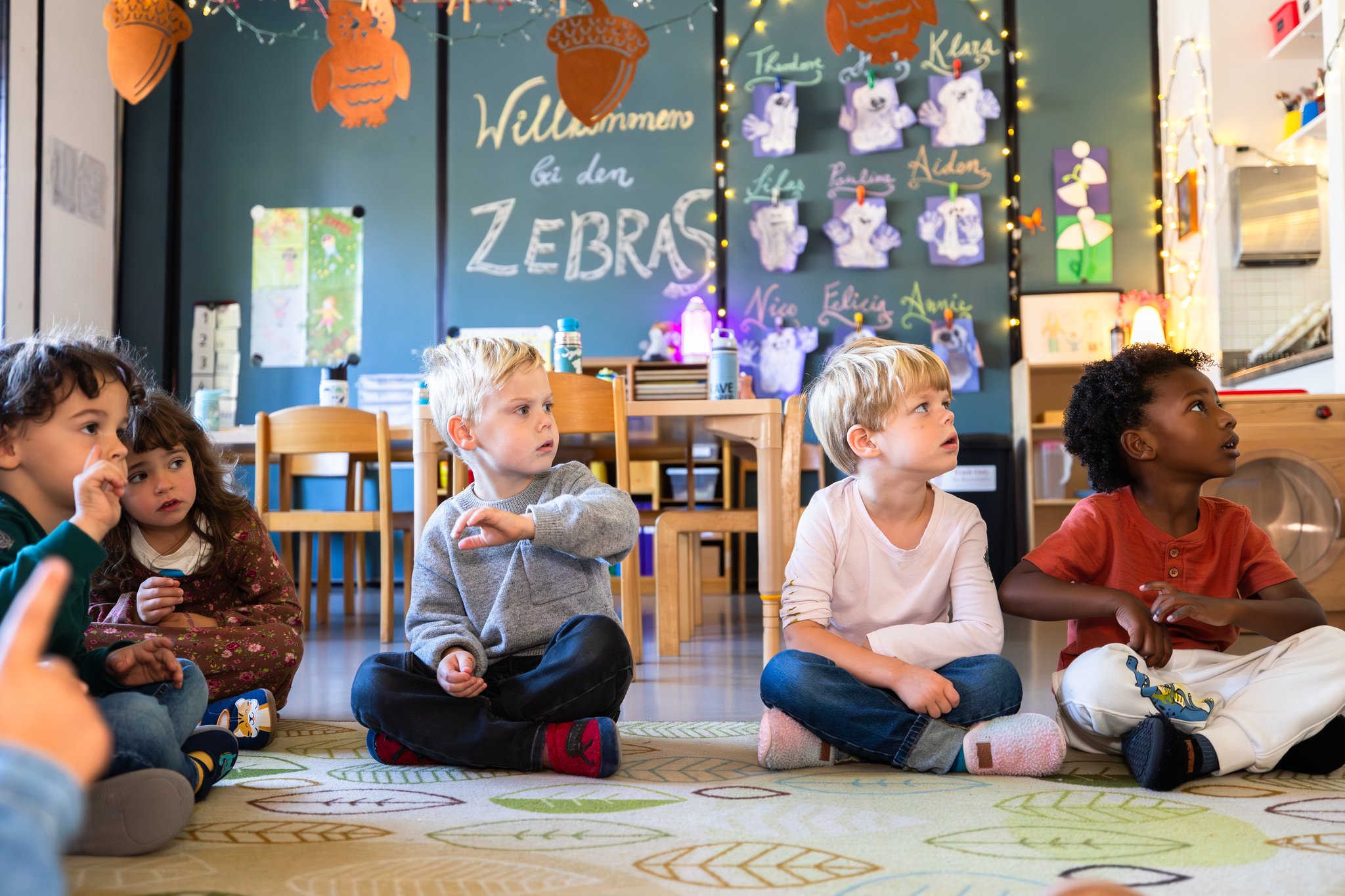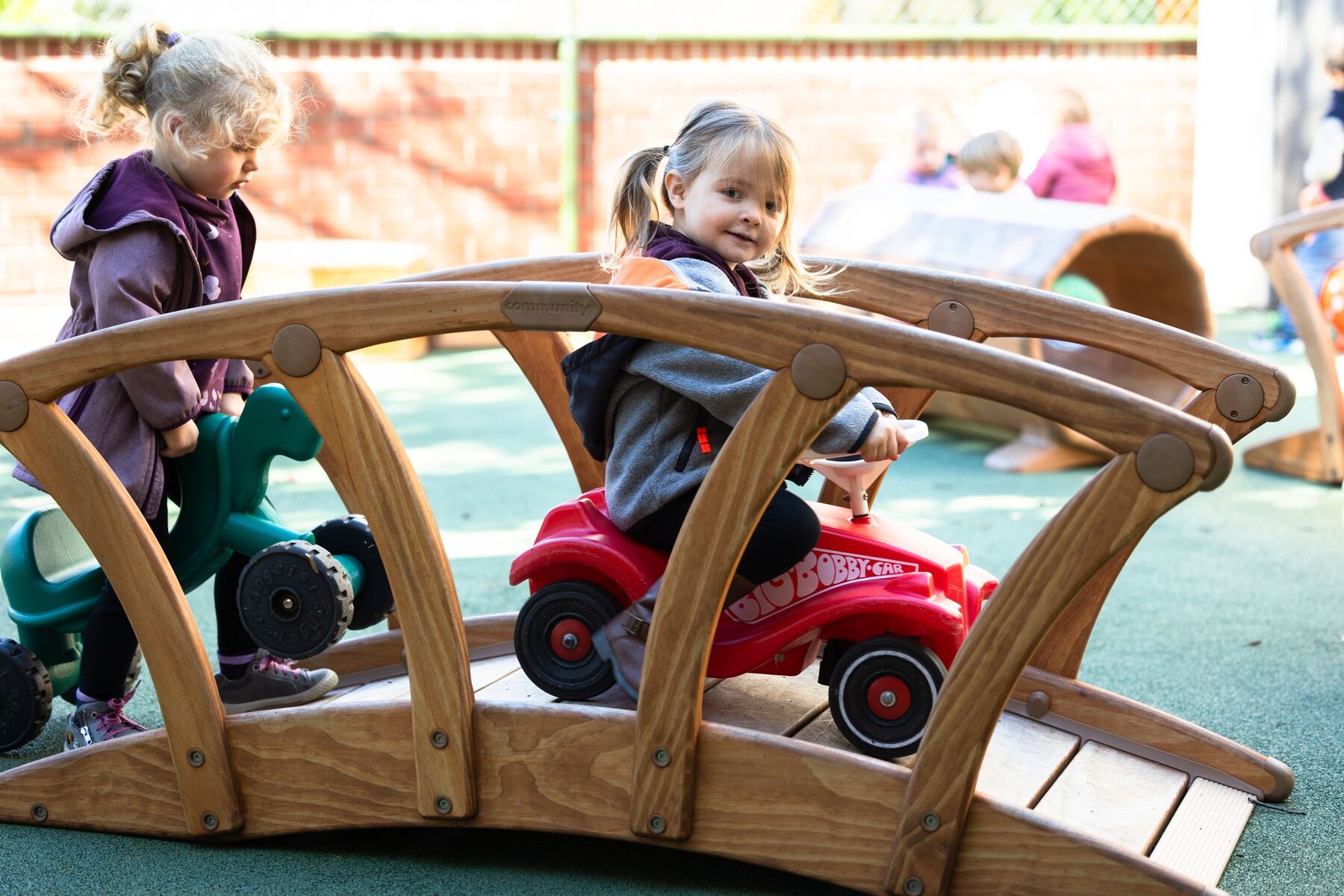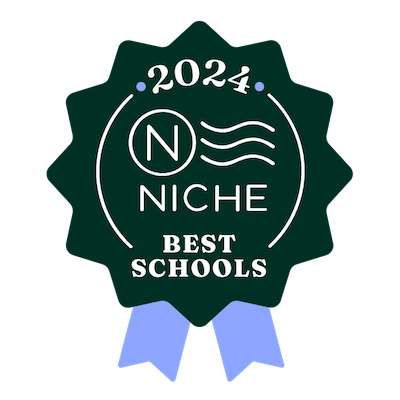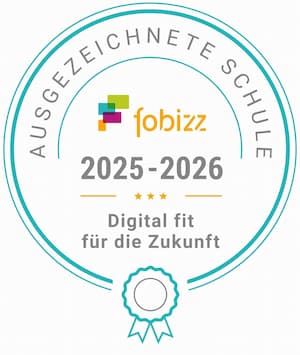Regular Schedule
TUESDAY, MARCH 3, 2026
Die GISW richtet sich nach dem regulären Stundenplan. Die Schule öffnet pünktlich.
........................................................................
GISW operates on a regular schedule. The school opens on time.
Overview of the Preschool Program
Thank you for your interest in the Preschool at the German International School Washington D.C. There are 2 groups for 2-year-ols (Bees & Butterflies and Pandas) and 4 groups for three-to-four-year olds (Frogs, Ladybugs, Seahorses, Zebras). We spend a lot of time outdoors in the morning and afternoon groups as well as in extended care.
Please follow these links for further information:
> PRESCHOOL: Pedagogical Concept
> PRESCHOOL: Handbook
> PRESCHOOL: Transitioning into preschool
Overview

The Preschool places great emphasis on the social and emotional development of the children. During Free Play, Morning Circle and various other activities children learn to recognize, express and accept their own needs and feelings. They learn to be independent and organized in their daily activities and are taught skills which enable them to resolve disputes with other children in a socially acceptable manner. Children also learn decision-making skills, how to take the initiative as well as perseverance. Emphasis is placed on respect for others, willingness to help others and teamwork within a group.

Free Play (creative phase)
For children, play is the most important form of self-expression. Through play, children are able to express both positive and negative feelings and freely explore other emotions. During the Free Play period, children may choose with whom, what and where to play. They learn to recognize and cope with their own strengths and weaknesses and are given the opportunity to use fantasy to role-play both real and imagined situations.
Math Skills
Preschoolers are motivated to use simple mathematical skills in a fun and creative way to solve problems. The foundation for these skills is formed by encouraging and facilitating appropriate ways of thinking about mathematical problems.
The child’s curiosity about math is stimulated through play and the use of shapes, forms, patterns and amounts. In this way basic principles of math are conveyed.
Science
Children are able to actively take part in Science projects. Something as simple as water can be explored in creative and playful ways while learning about underlying scientific principles. Our preschoolers are encouraged to independently explore, observe and learn about scientific phenomena such as cause and effect.
We feel that it is very important for children to take their own initiative. Through discussion we encourage independent thought. Preschoolers are also encouraged to repeat experiments so that they are able to focus on the methodology. Sometimes this leads to different results, which in turn enables the child to understand the broader concepts underlying the experiment. This complex way of thinking helps develop logical thinking.
Language Development
Language is the most important way of communicating; therefore, the development and encouragement of language skills is a crucial part of instruction. German is the instructional language used at our Preschool. Children who are not native German speakers are immersed in the language throughout the day. There is also extra tutoring available by German teachers from outside the school.
Learning to speak a language is something that takes place not only cognitively but even more through daily immersion. Immersion involves many different activities and senses, including music, role-playing, art, building blocks, nature walks, cooking, gymnastics, etc.
For children who qualify for DaF (German as a Foreign Language) we have initiated a language program called Hocus & Lotus and Finky & Me. This program was specifically developed for preschoolers and is taught by a qualified teacher. We also support German native speaking preschoolers to become more fluent in English.
Nature and Environment
Through nature walks, frequent trips to the playground as well as field trips the children learn to discover nature. This process involves not only development of large motor skills such as running, jumping and hopping but also fine motor skills using natural materials for art and building projects.
Children are encouraged to let their imagination run free and to turn natural objects into toys, for example, a stick becomes a sword, or sand and leaves become cake and vegetables.
Children are able to discover the cycles of nature and learn about changing seasons. They are taught to value the environment and also develop empathy by rescuing ladybugs and worms. Learning about nature and the environment takes place holistically, using all five senses.
Large Motor Skills
Movement and play are essential for a child’s development. Free play, climbing, jumping and running give children feelings of freedom and joy, enabling them to discover many new things. Every movement develops self-assertion, self-confidence and awareness of one’s own body. For small children who are going through the most active phase of their young lives, every movement is a chance to learn something, test boundaries and develop motor skills such as hopping, balancing, sliding and riding a tricycle.
Fine Motor Skills
Children are encouraged to develop fine motor skills through play with objects such as tablecloths, holding a fork and spoon, using buttons and zippers, holding pencils and paint brushes, cutting, kneading and solving puzzles. Using a wide variety of techniques and objects children are able to increase fine muscle strength and hone coordination, which in turn helps them to practice and feel confident in their abilities.
Music
Music is not only beautiful; it also helps children develop their sense of hearing as well as it helps improve language skills. Music and singing combine rhythm and movement which in turn increase concentration skills. We want to awaken and encourage musical talent, therefore we sing and dance a lot and play simple instruments.
Nutrition
Healthy nutrition is highly valued in our Preschool. Every month there are different cooking and baking projects. We take our preschoolers to visit farms where they choose fresh produce to prepare food at school, for example, picking apples to make applesauce, strawberries to make marmelade and vegetables for a nutritious soup. Preparing dishes allows children to relate more closely to food, which in turn motivates them to try healthy new snacks.









